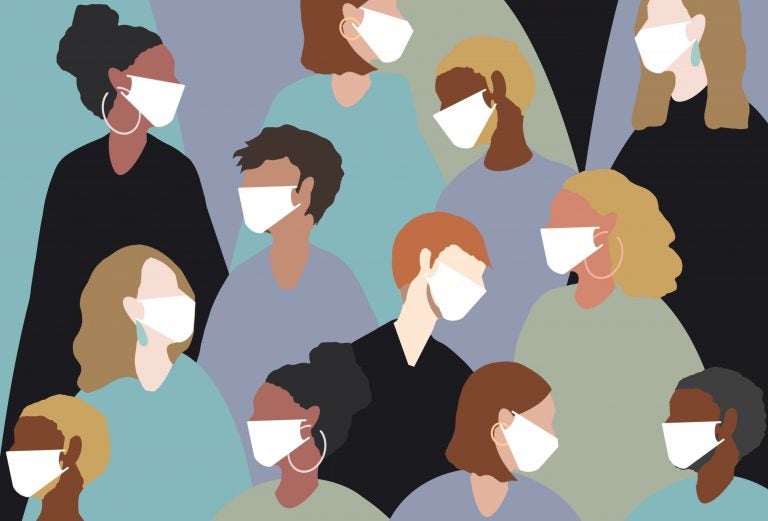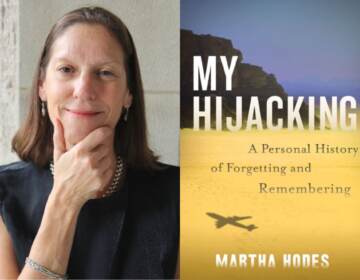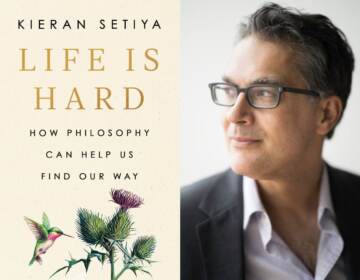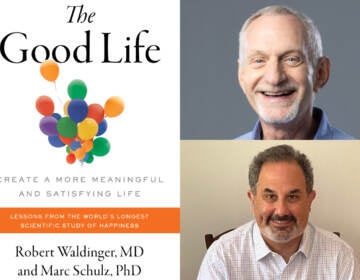Feeling anxious about returning to post-pandemic society? You’re not alone

As people begin to re-emerge from over a year of isolation, there's a lot to navigate and re-learn. (Ada daSilva/Getty Images)
After a long, dark year, social muscles have atrophied. In-person gatherings now call for weighty questions about COVID-19 safety. And many people, who during the pandemic found relief in empty calendars, don’t want to go back to the world as they knew it.
NPR’s All Things Considered heard from listeners who are grappling with these new realities, and we enlisted two experts to help answer those questions: Dr. Lucy McBride, a primary care physician, has been hearing a lot about these post-pandemic stumbling blocks from patients and Ekemini Uwan, a theologian, has written about letting go of the past in order to build a better future. Listen in the audio player above and read on for excerpts of their responses.
Touchy questions
“How do I — and we all — navigate the social minefield that is determining if friends and acquaintances and family members are comfortable with in-person events and are vaccinated before we invite them to something? Are these just things we’re going to have to get used to asking point-blank before anything that we try to do?” — Zachary Wilson, Pittsburgh
Ekemini Uwan: I do think there’s a lot of liberty and some grace to ask these questions that would be much more personal to ask in the before-times, whereas it doesn’t seem as inappropriate to ask now — and just asking them, “What’s you’re comfort level?” And they can just say, “I’m not comfortable,” and you accept that.
How to be an introvert
“I have found that being more isolated actually has invigorated me. How do I politely and firmly decline invitations for social events I don’t want to go to once I can no longer use the pandemic as an excuse?” — Raymond Schultz, Manchester, N.H.
Uwan: The reality is that “No” is a complete sentence, as they say, right? We have been socialized to think that we have to give a reason for our “No,” but I do think that you can simply just say “No.”
Lucy McBride: If nothing else, the pandemic has laid bare the critical importance of addressing our own mental health. And, for some people, having optimal mental health is not just about not getting COVID, it’s about having time to sleep, relax. So, I think that we need to realize what it means to be human: It’s more than the absence of disease, it’s making our needs known and communicating those to other people.
Maintaining a work-life balance
“It was always hard for me to send my kids to day care every day. And the pandemic — although it hasn’t been perfect, for sure, in many ways — has been an opportunity for me to work and be with my kids. That’s just been amazing and I’m so scared to give that up.” — Jill Settle, Silver Spring, Md.
Uwan: I do understand that reluctance and that hesitancy, and grieving the fact that we had an opportunity for things not to go back to what they were. We could have [begun] to forge a new normal, a new way of life, a new way of thinking — as it relates to work, as it relates to family. And those things have just not have happened.
McBride: When you are dealing with a crisis like this, you can have post-traumatic stress — and we all will on some level. There’s also something called post-traumatic growth. I think that there are moments in our lifetime, and this is one of them, where we can really think hard and think big about what the future should look like. There’s a lot we should let go of and a lot we can improve on.
Back to small talk?
“I feel like I’ve lost the ability to smoothly converse with other people. I’m wondering, how do we re-learn to do that after a year of having to think of other people as a danger?” — Jake Blount, Providence, R.I.
McBride: The way I’m counseling my patients is to really start gradually. You shouldn’t perhaps go to a big cocktail party as your first outing. You might want to go a picnic with your close friend and see how it feels.
Uwan: I would also say, even with the question about the small talk, you know, do we have to bring that back with us? … Maybe there’s something in between, like making eye contact, being like, “How are you? It’s good to see you.” … Acknowledging that we’ve come through something.
Meeting division with forgiveness
“How do you just get over and forgive people for not taking the pandemic as seriously as you?” — Gaby Markley, Los Angeles
Uwan: Instead of turning to judgment … I think that we need to turn to wonder. What is the information or the disinformation that they’re imbibing, that’s shaping they’re thinking? And I know that’s hard to do, to be able to extend grace, to give some liberty and to give some latitude. But I do think we have to turn to wonder — even just for your own peace and sanity, if nothing else.
McBride: We need to give people a wide berth, forgiveness and latitude. Because we’ve all experienced trauma and everyone will process it in different ways.
9(MDAzMzI1ODY3MDEyMzkzOTE3NjIxNDg3MQ001))


![CoronavirusPandemic_1024x512[1]](https://whyy.org/wp-content/uploads/2020/03/CoronavirusPandemic_1024x5121-300x150.jpg)


